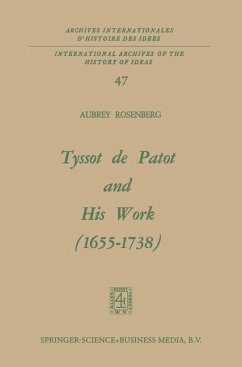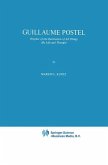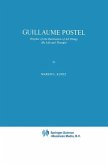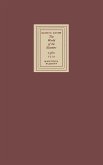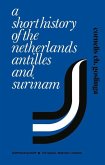Although the novel, Voyages el avantures de Jaques Masse, caused some thing of a stir during the first half of the eighteenth century, its author, Simon Tyssot de Patot (1655-1738), remained largely unknown in his lifetime, and it is only in this century that he has been recognized as one of the countless soldiers in the vast army of philosophes that assaulted the bastions of religious, political and sodallife in Europe of the late seven 1 teenth and early eighteenth centuries. Tyssot was a Huguenot who lived most of his life in Holland where he pursued a career as professor of mathematics in the sodal and cultural 1 Tyssot and his work seem to have been first brought to the attention of modem writers by the German critics during their investigation of the type of desert island or robinsonade literature that preceded and followed Defoe's Robinson Crusoe. The earliest reference I have found occurs in A. Kippenberg, Robinson in Deutschland bis zur Insel Felsenburg (1713-43), Hanover, 1892, pp. 66-67. Tyssot's name and work appear to have been first linked with the development of socialism in A. Lichtenberger, Le Socialisme au XVIIIe siecle, Paris, 1895, p. 44. Tyssot's Voyages et avantures de ]aques Masse was discussed for its literary merits in A. LeBreton, Le Roman au dix huitieme siecle, Paris, 1898. LeBreton did not know that Tyssot was the author.

